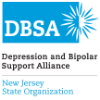Treatment of depression may include medication, talk therapy, or other strategies that you and your health care provider may want to try. The right treatment is the one that works best for you.
The Depression and Bipolar Support Alliance does not endorse or recommend the use of any specific treatment or medication for mood disorders. For advise about specific treatments or medications, individuals should consult their physicians and/or mental health professionals.
The good news is that of all psychiatric illnesses, depression is one of the most responsive to treatment. With proper care, approximately 80 percent of people with major depression experience significant improvement and lead productive lives – even those with severe depression can be helped. Be patient and persistent. Do not give up hope and remember you are not alone. At DBSA, we’ve been there and we can help.
Medication
The Food and Drug Administration (FDA) has approved dozens of medications to treat depression. These medications are divided into various classes; each one having a distinct chemical structure that acts on different chemicals in the brain. It is important to remember that all FDA-approved medications for depression are effective – they just don’t work the same for everyone. You should work closely with your doctor to determine which medication might be best for you. Sometimes this may involve trying more than one medication or a combination of medications. Never change your dosage or discontinue your medication without talking to your doctor.
Talk therapy
Psychotherapy, or “talk therapy” is an important part of treatment of depression for many people. It can sometimes work alone in cases of mild to moderate depression or it can be used in conjunction with other treatments. People who are severely depressed may not be able to benefit from psychotherapy until their symptoms have been lifted through another means of treatment.
A good therapist can help you modify behavioral or emotional patterns that contribute to your depression. There are several types of psychotherapy: interpersonal, cognitive-behavioral, group, marriage and family, to name a few. Research the different types and find one that is right for you. Psychotherapists, while highly-educated professionals, are not medical doctors and therefore cannot prescribe medication. If you or your therapist think you could benefit from medication, you need to see a general practitioner or a psychiatrist.
Herbal or Natural Treatments
Dietary supplements and other alternative treatments that are advertised to have a positive effect on depression regularly enter the marketplace. These alternative treatments include Omega-3, St. John’s wort, SAM-e and others. DBSA does not endorse or discourage the use of these treatments. However, remember that natural is not always synonymous with safe. Different brands of supplements may contain different concentrations of the active substance when processed in different ways and these alternative treatments may have side effects, so read labels carefully and discuss them with your doctor or pharmacist.
Recent studies have suggested that herbal treatments, such as St. John’s wort, may interfere with the beneficial effects of some medications. Be sure you tell your doctor about all of the medications or herbal remedies you are taking.
Electroconvulsive Therapy (ECT)
Electroconvulsive therapy (also known as shock therapy) is intended for people with severe symptoms of depression or sometimes mania. When medications and psychotherapy fail to adequately lessen symptoms, ECT can be a safe and effective alternative treatment. ECT is never forced upon people or used as a means of submission.
Mild electrical stimulation to the brain causes brief seizures which, in turn, relieve the depression. ECT is painless; muscle relaxants are administered to the anesthetized person to eliminate shaking. An average of six to 12 treatments over a three-to four-week period is usually required. After successful treatment subsequent depressive episodes may be managed by antidepressants or less frequent maintenance does of ECT. Like all treatments, ECT has potential side effects. Although there have been reports of memory disturbances, most ECT patients feel that the benefits far outweigh the prospect of suffering from long-term, severe depression. This is especially true for suicidal patients who may otherwise have carried out there impulses if they had waited for medication therapy to take effect.
